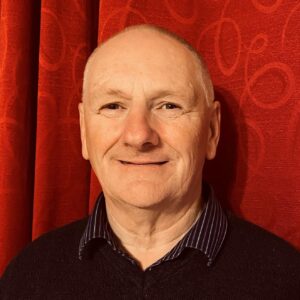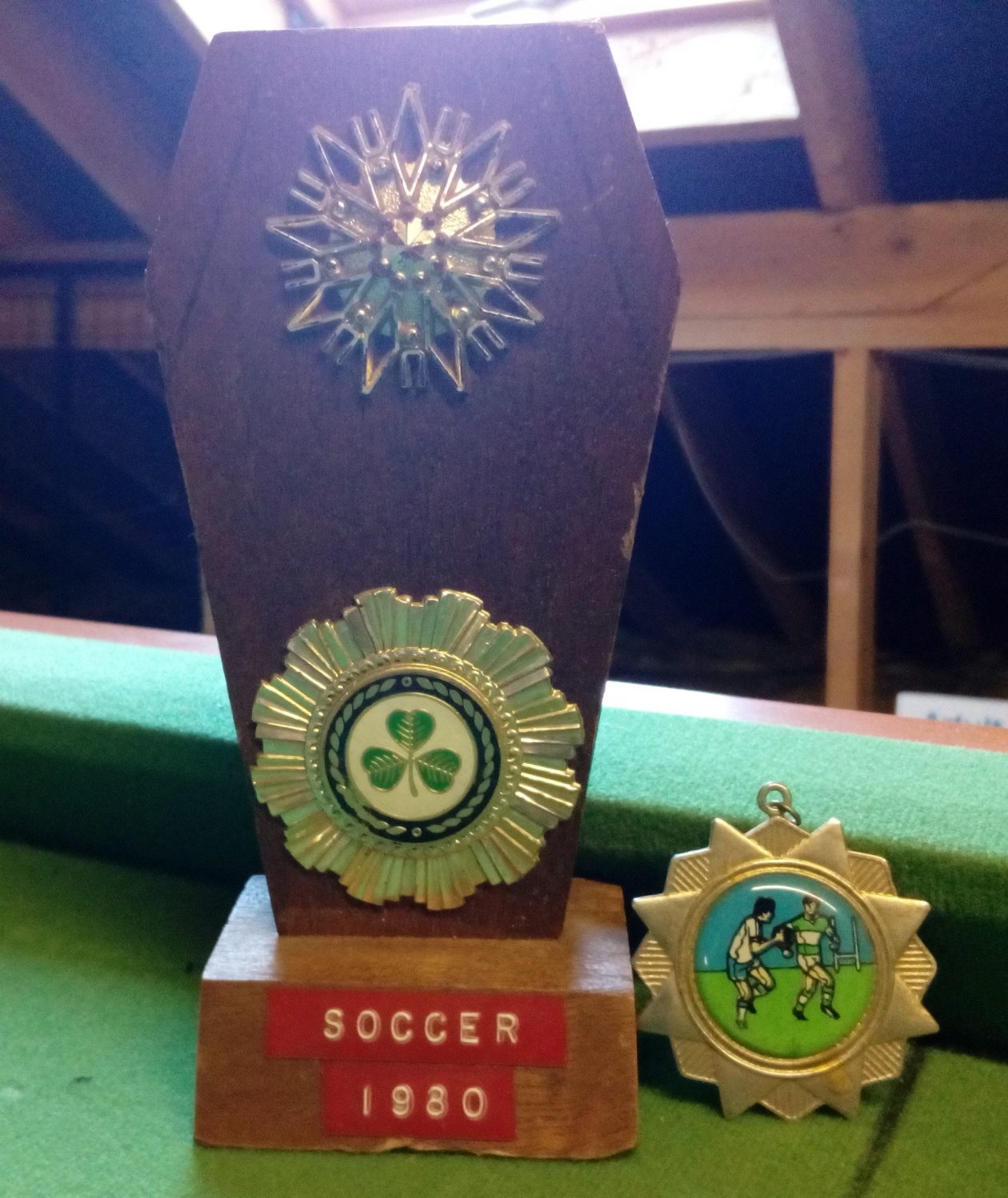Last month, I wrote about how I became a writer. This month I will tell you how I got into coaching and team management. It started accidentally rather than by design. As a child, I loved team ball games, be it a sliotar (that is a hurling ball for visitors who don’t know), a Gaelic Football or a soccer ball. I just love the physical activity of striking a ball combined with the camaraderie of doing it with a group of friends or teammates. I loved the competitive aspect of team games and the aim to be the best you can, though in hindsight, I never really fulfilled my potential as a player in any sport, but that is a story for another day.
When I went to Carrick-On-Suir Vocational School (the Tech), there was always an annual soccer league usually run by the teachers. By the time I got to sixth year, as said last month, the number of boys was low. I was the only sixth year boy and there was one fifth year boy, Wayne McNamara, the school caretaker’s son who had very little interest in soccer or in any sport. However, we became good friends that year and I grew his knowledge and ability in sport. None of the teachers took on the organising of the soccer league, so in a crazy moment, I volunteered to organise the soccer league, thus began my organising career, a trait which I now know to be essential for good team management.
I got together a number of lads who would be team captains. The better players from the older classes. Together we used consensus to grade all the players. Then one by one the captains would pick a player from the seedings with the sequence being alternated so everyone got a chance to pick the best player in the seeding group. It was like a modern-day World Cup draw. Interestingly, half my team ended up being first years. The other captains thought I had been over hard on myself to ensure the integrity of the team selections. Integrity is huge for me in sport. I on the other hand saw the positives of everyone I picked and knew it was my job as player manager to cover up any weaknesses they had and exploit their strengths. For example, Wayne McNamara was on my team. Even though he was a fifth year, everyone knew he wasn’t into soccer. However, I knew he would never stop trying and he would keep getting in the way. I encouraged him to get in everyone’s way and it turned out to be a good defensive ploy because I made sure my skilful lads who were first years kept out of his way. A defender has to get in the way and a lot of his job is done. And I loved work rate. Still do. Getting in the way doesn’t have to be a bad thing.
Anyway, we went unbeaten in this six-a-side league all the way to the final where we were to meet the “favourites”, although in my mind we were the favourites. Belief was and is a huge part of my managerial philosophy. The final took place at the pitch at the back of The Tech on 4th June 1980. It was a tight tense game and it was nil all with 2 minutes to go. Our young first years were finding it hard to break down the opposition due to their physical limitations. However, we were solid at the back. I was defending and Wayne was doing what I asked. If the ball did get past us, our goalie, Noel Mackey was a safe pair of hands. The three first years David Tobin, John Connolly and John “Speedy” Kavanagh worked hard. “Speedy” was the class player, while the other two were work horses and I loved that trait. With that 2 minutes left, I wanted to win the game, so both myself and Wayne pushed forward. I took a shot, their goalie saved, the ball pretty much hit off Wayne on the rebound. 1-Nil to us! Wayne was my first lesson in there can be a place for everyone in the team jigsaw, if your open your eyes and mind and find it. A minute later, with their defence opened up, “Speedy” added a second and sealed the school league. His son Daryl Kavanagh went on the play League of Ireland. I like to think “Speedy” learned something from me that he passed on to Daryl. It may have just been a mini school soccer league, but the thrill of outwitting the opposition was like a drug. I had been a very shy child (A lot of people who only know me in adult life, may not believe that, but it is true). Sport had changed that. Sport gave me confidence and the chance of leadership and the mini league had boosted my confidence no end.
A few months later, a similar opportunity arose in GAA. Windgap’s Minor Gaelic Footballers were invited to take part in one off 7-A-Side football match against Callan’s footballers as part of the Coolagh Pattern. Windgap’s footballers at that time were known as Lamogue which was my townland. The Callan footballers were known as Coolagh. We were obviously invited not just because we were neighbours but because Coolagh felt they could beat us at their Pattern which is really a Field Day. Who would blame them? Unfortunately, nobody in Windgap wanted to manage us. Who wants a minor football team that never trained? The subsequent events inspired my play “Rathmore” later. Together with Paddy Walsh (he was later to win a National Hurling league medal with Kilkenny and an Under-21 All-Ireland and also play in the 1987 Senior Hurling Final against Galway), we set about getting 7 lads to play. We were like “The Magnificent Seven”, the odds were stacked against us. We got seven aces, lads we grew up with. We were ready, kind of. We had no ball of our own for the warm up. No water, no first aid and barely got the jerseys. I think only some of our parents supported us in Coolagh. The seven were Sean Kelly, Eamonn Murray, Jimmy Purcell, Denis Foley, Simon Brophy, Paddy and myself who were joint Player Managers. I was also Captain and although Paddy was joint manager, I was effectively the leader. Paddy and myself were really like Yul Brynner and Steve McQueen! I arrived in Coolagh on the back of Paddy’s Honda 50, barely room for the plastic gear bag. Some team bus all the same. I cannot recollect how the other five lads got there.
Again, I looked at our strengths and although I didn’t get it fully right starting off, I was prepared to switch lads around to get the best from the team. We trailed 1-1 to a goal at half time. Simon Brophy got our goal. The partisan crowd were delighted to be leading at the break. We even heard men from Callan laughing that we had nobody managing us except ourselves. I had started myself as a forward, but I was not making any impression. I knew Paddy who had started at midfield was sharper in front of the goal whereas I could and would run forever at midfield. We switched.
Coolagh got another early goal at the start of the second half. I still believed we could win and the partisan crowd even more excited. As Seamus the player, I worked harder. As Seamus, the Manager and Captain, I shouted louder. There was nothing in mind and body that I was going to leave on that pitch. The move of Paddy to the forwards was beginning to tell, he was in outstanding form. He set up Simon Brophy for a second goal. We were a point down. With a minute to go I won a “dirty” ball at midfield, played a quick accurate pass to Paddy. He burst through the Coolagh cover and drilled the ball to that back of the net. The partisan crowd were stunned. Lamogue won 3-0 to 2-1. It was unbelievable, but true. I have the medal to this day and it is one of my most prized medals. The addiction to team management and leadership was going from strength to strength. That was the 14th September 1980. In 1991, that became my wedding anniversary. Two great reasons to remember the past.
In 1982 and 1983, Myself and Paddy joined up with Eamonn “Grimes” Cronin to manage the Windgap Under-16 and Minor hurling teams to a period of success, although maybe slightly under achieving too. I was learning all the time about players and their strengths and how to utilise them as best we could. We lost the South Roinn C Minor final to Carrickshock in 1982 and then Kilmacow in 1983. In between in 1983, we beat Conahy Shamrocks in the Minor Roinn C League Final 0-11 to 1-5. It was Windgap’s first ever minor county title. Another historic victory. Twenty-one and I had led a team to county success.
My peers recognised my leadership qualities, though others saw them as a threat. Club politics soon saw my management roles end for a number of years. From a playing point of view, it was a blessing in disguise and club politics is also a story for another day. However, the shoots were growing and I was now a junkie who thrived on organising and leadership, A humble plaque from a mini school soccer league and a humble medal from a once off 7-a-Side Gaelic Football match had laid the foundation for later successes such as All-Ireland success with Kilkenny Under-14 hurlers in both the Tony Forristal and Sonny Walsh tournaments. I have managed in Hurling, Gaelic Football and Ladies Football at inter county level, the only Kilkenny person to manage in three of the four team codes for Kilkenny. I have also managed in all plus Camogie at club level.
I love the challenge of outwitting the manager of the opposition. I love the challenge of getting all the pieces of the jigsaw in the right place. I love the mental analysis of my team’s performance versus that of the opposition. I love getting to know what makes a player tick, finding their strengths and their weaknesses, looking for opportunities and reducing the threats. I love the planning and organising. I love the fruits of success. In the words of John Quincy Adams” If your actions inspire others to dream more, learn more, do more and become more, you are a leader.”. The last chapter is not written in this story yet, by a long shot.


Leave a comment